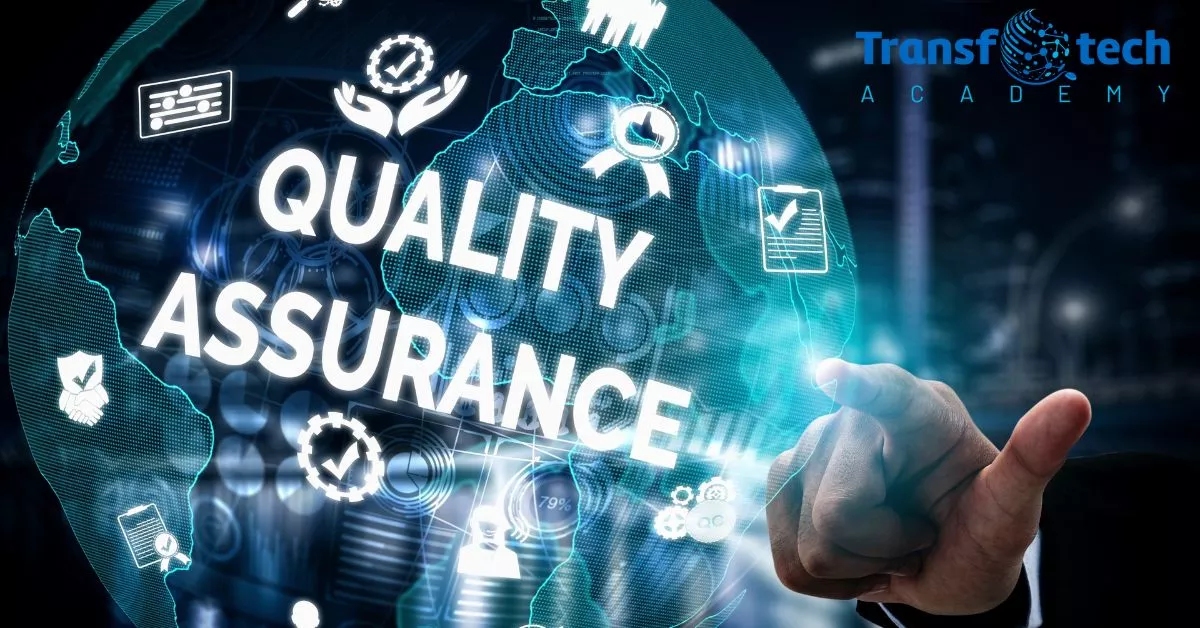Have you ever used an app or website that didn’t work properly? Maybe it crashed, froze, or the buttons didn’t respond. Such frustrations often occur because the software wasn’t tested thoroughly. That’s where Quality Assurance (QA) Engineers come into play. These professionals ensure that apps, websites, and software meet quality standards before being released to the public.
If you’re curious about becoming a QA Engineer, this guide is for you. Let’s dive into the role, the required skills, and the steps to launch your career in software testing.
What is a Quality Assurance Engineer?
A Quality Assurance Engineer (QA Engineer) is responsible for testing software to ensure it works as expected. They identify bugs, usability issues, and performance gaps, collaborating closely with developers to resolve them. The ultimate goal is to deliver software that is functional, secure, and user-friendly.
Responsibilities of a QA Engineer
QA Engineers handle critical aspects of software testing. Here’s what they typically do:
- Test Software: Identify and document bugs or malfunctions.
- Create Test Plans: Develop structured approaches to test applications.
- Report Issues: Clearly communicate software flaws to the development team.
- Ensure Standards: Verify that the software aligns with quality benchmarks.
- Automate Testing: Use tools to run repetitive tests efficiently.
Skills Required to Become a QA Engineer
A combination of technical expertise and soft skills is essential for success. Here’s a breakdown of both:
Technical Skills:
- Manual Testing: Test software manually to catch user-experience issues.
- Automation Testing: Learn tools like Selenium, JUnit, or TestNG.
- Programming Basics: Understand coding languages like Python, Java, or JavaScript.
- API Testing: Test how software interacts with other systems.
- SQL Knowledge: Use databases to verify application data.
Soft Skills:
- Attention to Detail: Spot errors that others overlook.
- Problem-Solving: Identify and resolve issues effectively.
- Communication: Articulate findings to team members clearly.
- Teamwork: Collaborate with cross-functional teams.
- Time Management: Meet deadlines without compromising quality.
Do You Need a Degree?
While a degree in Computer Science or IT can be helpful, it’s not mandatory. Many QA Engineers start their careers by taking specialized courses or bootcamps. Online platforms, such as Transfotech Academy, offer a Quality Assurance Engineer Training Online designed to equip you with the necessary skills for this role.
Certifications: Are They Necessary?
Certifications aren’t mandatory, but they can boost your credibility. Some industry-recognized certifications include:
- Certified Software Quality Analyst (CSQA)
- Certified Software Tester (CST)
- Certified Associate in Software Testing (CAST)
These certifications demonstrate your expertise to potential employers and can give you a competitive edge in the job market.
Steps to Launch Your Career as a QA Engineer
- Learn the Basics: Familiarize yourself with the fundamentals of software testing.
- Take a Course: Enroll in a program like the QA Engineer Course at Transfotech Academy to learn both manual and automated testing.
- Practice: Work on real-world projects to refine your skills.
- Gain Experience: Look for internships or freelance opportunities to build your portfolio.
- Prepare for Interviews: Practice answering technical questions about software testing.
- Stay Updated: Technology evolves rapidly, so continuously learn new tools and techniques.
Job Outlook and Salary
The demand for QA Engineers is on the rise. With software playing a critical role in every industry, companies need skilled testers to ensure quality.
- Job Growth: Expected to grow by 25% over the next decade.
- Average Salary: QA Engineers in the U.S. earn an average base salary of $72,000, with senior roles exceeding $100,000. Specifically, the software quality assurance engineer salary in New York City can be significantly higher due to the city’s competitive job market.
Why Choose Transfotech Academy?
The QA Engineer Course at Transfotech Academy offers a comprehensive curriculum that combines theory and hands-on practice. Here’s what sets it apart:
- Manual Testing: Master the art of testing software without automation tools.
- Automation Tools: Gain proficiency in industry-standard tools like Selenium.
- Real-World Projects: Apply your skills in simulated work environments.
- Career Guidance: Get tips on resume building, job applications, and interviews.
This course is designed for beginners and professionals alike, providing a strong foundation for a rewarding career in QA.
What Do Quality Assurance Engineers Do?
The role of a QA Engineer is multi-faceted and ever-evolving. Whether you are focusing on manual testing or diving into automation, you’ll be ensuring that the software is reliable, functional, and user-friendly. As a quality assurance automation engineer, you’ll also have the added benefit of being able to automate repetitive tasks, increasing efficiency and accuracy.
Benefits of a Quality Assurance Automation Engineer
Becoming a Quality Assurance Automation Engineer comes with several benefits:
- Increased demand for automation skills in the industry.
- Opportunity to work with cutting-edge technologies and tools.
- Higher salary potential, especially in senior or specialized roles.
Quality Assurance Engineer Certification
Certification isn’t necessary but can be very beneficial. Pursuing a quality assurance engineer certification can give you a competitive edge and demonstrate your proficiency in testing practices and automation tools.
Becoming a QA Engineer is a fulfilling and in-demand career path. You’ll play a pivotal role in delivering high-quality software to users while earning competitive compensation. By enrolling in the QA Engineer Course at Transfotech Academy, you’ll be equipped with the skills and knowledge needed to excel in software testing.
Start your QA journey today and help create better software for everyone!





